|
Saturdee Opry
Links # 134: Op Hits/Pop Hits
Yes, operatic arias were translated into pop hits, or had some kind of
relationship to them. . .Presenting a punishingly serious, scholarly,
academically erudite examination of this compelling phenomenon. SOL even took a
pandemic shower for the occasion!
Saturdee Opry Links Overture:
Donizetti: “Olivo e Pasquale”
https://www.youtube.com/watch?v=a-qv43A4q08
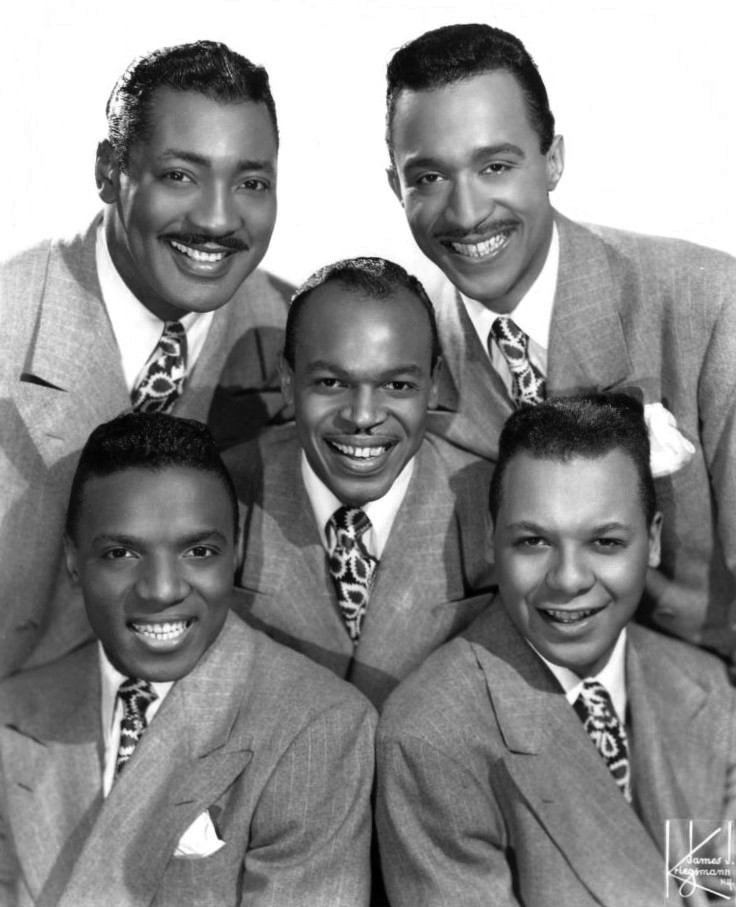
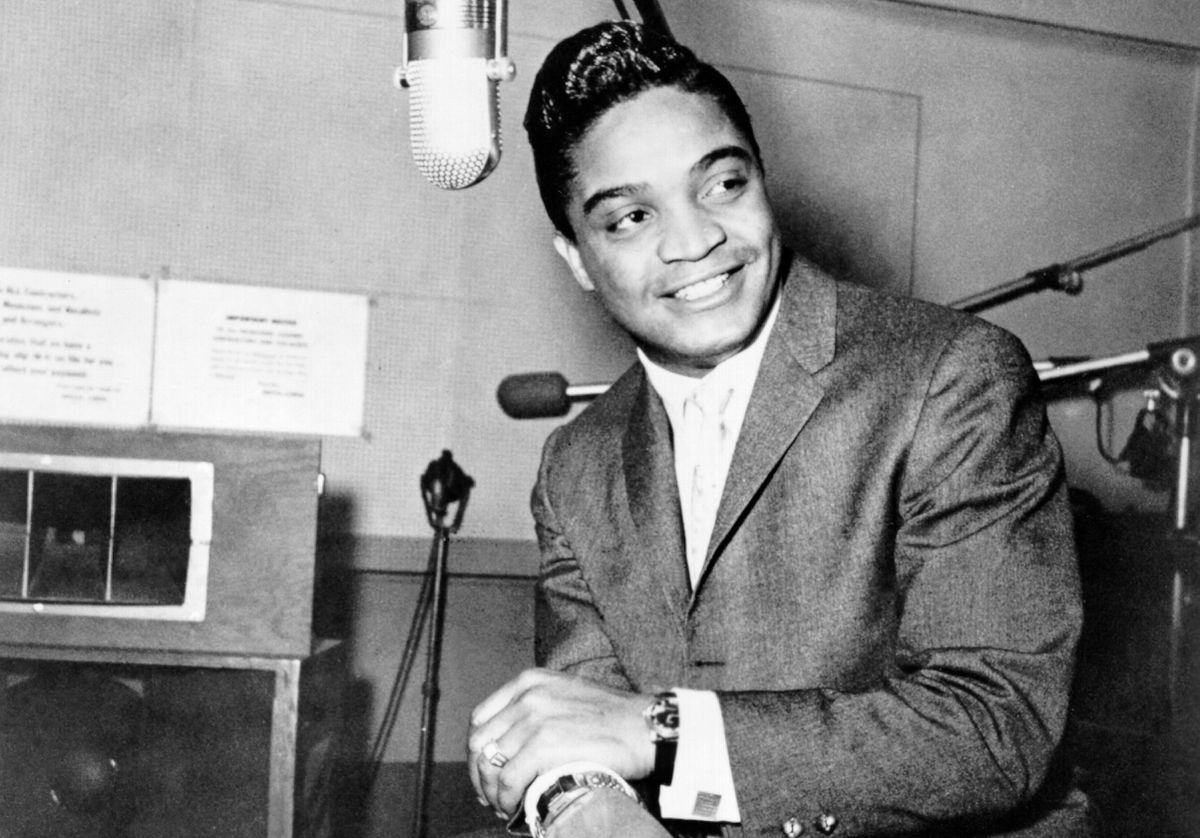
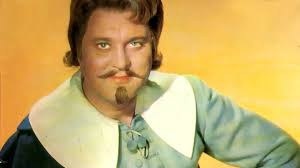
Delta Rhythm Boys
Jackie Wilson
Nicolai Gedda
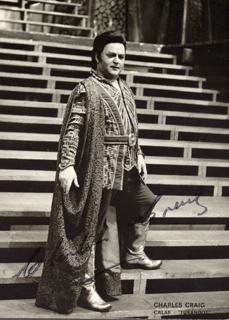
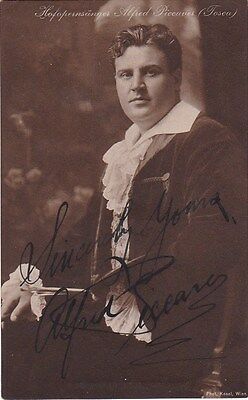
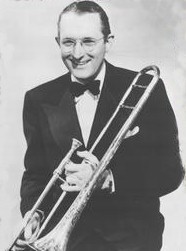
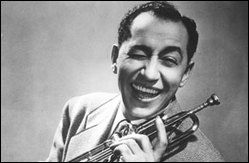
Charles Craig
Alfred Piccaver
Tommy Dorsey
Louis Prima
1.
"Then I hear the song that only India can sing,
Softer than the plumage on a black raven's wing. . ."
The opera, "Sadko," by the great colorist, Rimsky-Korsakov, is not performed
much outside of Russia any more, but. . .the melody lingers on. That is, the
aria, "Song of the Indian Guest," better known to rubes such as you and me as
"Song of India." (Paging Tommy Dorsey!) This enchanting, lulling, "exotic" aria
is heard here with the great tenor, Nicolai Gedda, in Russian, of course. Note
the captivating interplay between Gedda and flute!
Synopsis:
The opera tells the story of Sadko, a gusli player (Guslar), who leaves his
wife, Lubava, and home in Novgorod and eventually returns a wealthy man. During
his years of travel he amasses a fortune, weds the daughter of the King and
Queen of the Ocean and has other adventures. Upon his return, the city and
Lubava rejoice. The scene shifts to the realm of the sea-king, where Sadko sings
to the king and queen, winning the hand of their daughter, Volkhova.
Gedda:
https://www.youtube.com/watch?v=x7KXsVfopU
Translation:
https://www.opera-arias.com/rimsky.../sadko/song-of-india/
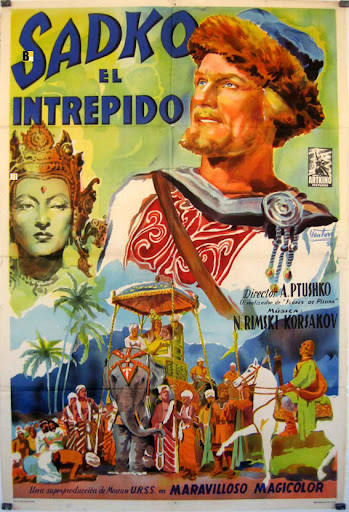
POP HIT: (Note: You are prohibited by law from
looking at the EXTRA unless you have first listened to post # 1---the original
aria, "Song of the India Guest." You're on the honor system. . .)
We paged Tommy Dorsey in post # 1, and here he is, with his hit version of "Song
of India." No kidding.
https://www.youtube.com/watch?v=iZIx6NCCeLg
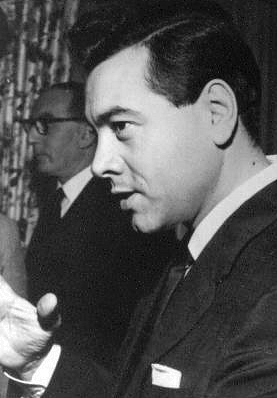
And yes, you are quite right: Mario Lanza crooned it, too:
https://www.youtube.com/watch?v=Yua3bdXQjzU
Plus: Paul Whiteman! Gadzooks!
https://www.youtube.com/watch?v=HDv3vx-tjTQ
2.
Tenor Alfred Piccaver loved Vienna. I mean, he really loved Vienna. He loved it
so much that when the director of the Metropolitan Opera in New York, Giulio
Gatti-Casazza, made a lucrative offer for him to appear at the Met, he turned it
down! (No, he was not asked again.) Now that's love. And the Viennese were
devoted to 'Picci', a regular at the Vienna Opera, especially after the Met
fiasco. Yes, they thought Picci was keen. (https://www.youtube.com/watch?v=oShTJ90fC34
) Now, Alf was born in Britain, but was also a naturalized U.S. Citizen, so when
WWI broke out, being in Vienna became problematic---that is, when the U.S.
entered the fray in 1917. Alf was caught trying to escape Austria, but was
spared being sent to a prison camp on one condition: that he keep singing with
the Vienna Opera! The saving grace of music was never so literally illustrated.
Now, you ask, what does all this have to do with him singing the gorgeous Tosti
standard, "Torna a Surriento?" Not a thing. Note: Tosti Italian tunes were the
hits of their time, and to a great extent, remain so.
https://www.youtube.com/watch?v=WLVNKQGeFWM
Translation:
https://www.lieder.net/lieder/get_text.html?TextId=4964
More about Picci:
https://historyofthetenor.com/alfred-piccaver/
POP HIT:
Or perhaps you prefer the version that Dean Martin made. Yes, Dean Martin:
https://www.youtube.com/watch?v=sIMoYEt_c3w
3.
Charles Craig. You've heard of him, of course. Luciano Pavarotti, Placido
Domingo, Jose Carreras, and. . .Charles Craig. What, you haven't? Me, neither.
It's not exactly a name that trips off the operatic tongue; more suggests a
boat-builder than a navigator of High C's. What's more, Mr. Craig was from
Britain, the stereotypical land of restrained emotion. And yet, here he is,
sangin' them kra-zee Eye-talian areas like a reeel Eye-talian. Mr. Craig was
heavily in demand for all the major tenor roles---mostly in Europe---through the
'50's and into the mid-60's. His background? Somewhat the stuff of myth, as he
was the youngest of fifteen children, born in London. The kid loved to sing, but
his parents failed to encourage him for the simple reason that they both died
when he was young. Craig resigned himself to working in a tailor's shop, that
is, until opportunity appeared in the form of uh, World War II. He joined up,
and wound up singing concerts with the Southern Army Entertainments Unit, with
whom he toured India and Burma, singing arias he had learned by ear
without any formal training! Just like SOL's host! Incredible, eh? Unlike SOL's
host, Craig auditioned for Sir Thomas Beecham, who rejected him on the
spot---but then paid for two years of voice training for the man. Pretty damn
nice, eh? Hats off to Sir Tom. So here is Charlie with the hoariest of hoary,
the chestnuttiest of the chestnuts, operatic hit of hits, "La Donne e Mobile,"
from Verdi's "Rigoletto. "Women are flighty!" (By the way, Verdi was so certain
this aria would be a "hit" that he withheld the music from the tenor until the
very last moment---fearing the tune would be sung on the streets before the
opera opened.")
https://www.youtube.com/watch?v=mk-_xoPqtqM
Setting: The inn of Sparafucile
Synopsis: The Duke, disguised as a soldier, sings that all women are fickle and
that they will betray anyone who falls in love with them.
Translation:
https://en.wikipedia.org/wiki/La_donna_%C3%A8_mobile
POP HIT:
And, to demonstrate how this hit melody remains in the collective consciousness,
or lack of same:
https://www.youtube.com/watch?v=DAmPp1MSELk
4.
Reached into the old SOL grab-bag this morning, and out came Bobby McFerrin.
Now, I hate Bobby McFerrin---no check that, I don't even know him. He might be a
perfectly fine fellow. But I hate his stupid, cretin, awful, vile hit, "Don't
Worry, By Happy." I think this is the worst advice anyone could give or follow
in this time of ecosystem collapse and Internet-wrought insanity. So there. But
I do like the recordings his father made! His father? Never heard of him, you
say? Well, that's quite an ironic, sad demonstration of the triumph of insipid
over fine art, but Robert McFerrin, Bobby's father, was a tremendous operatic
baritone and---thanks to Metropolitan Opera GM Rudolf Bing, who gave him his
shot---became the first African-American to sing "Rigoletto" at the Met (1955.)
Here is an article about Mr. McFerrin:
https://www.theguardian.com/music/2021/may/12/robert-mcferrin-baritone-metropolitan-opera-peter-brathwaite
And here he is with "Don't Worry, Be Happy," from Verdi's "Rigoletto." Wait,
no---I mean, "Par Siamo."
https://www.youtube.com/watch?v=r9q_MjRRerk
Setting: A street
Synopsis: After he meets Sparafucile, an assassin, Rigoletto compares himself to
the murderer saying that, as Sparafucile used his knife as a weapon, Rigoletto
used his tongue.
Translation:
http://www.aria-database.com/search.php?individualAria=266
POP HIT:
And, yes, here is the atrocious hit done by McFerrin's son:
https://www.youtube.com/watch?v=d-diB65scQU
SOL EXTRA!
Our SOL special edition about pioneering African-American male opera singers:
http://riprense.com/Oprylinks118.htm
5.
SOL followers---all two of you---remember well the edition four years ago in
which I posted arias, and the pop hits derived from them. You know, "It's Now or
Never" comes from "O Sole Mio," and so on. Well, seeing as today's edition seems
to be a revival of this theme. . .I reached into the grab-bag, and out came the
luscious, hypnotic aria from "Samson and Delilah," "Mon Coeur s'ouvre a ta voix,"
or "My heart opens to your voice." Which, of course, immediately reminded me of
Jackie Wilson. Uh. . .say which? Wilson loved opera---would have rather been an
opera star---and tried to emulate operatic singing in his own work. Really! One
of the opera-cribbed melodies he adapted was, of course, "The Night,"---which is
straight from "Mon coeur s’ouvre à ta voix" from the "Samson et Delilah" by
Camille Saint-Saens. "He loved opera," said playwright Jackie Taylor, author of
"The Jackie Wilson Story." "But," she added, "it was hard enough just being a
black singer, let alone being a black opera singer." "The Night" reached No. 4
on the Billboard Hot 100 in 1960.
Here is Jackie:
https://www.youtube.com/watch?v=h_ctJX8qmfM
And here is the original aria, as sung by Maria Callas:
https://www.youtube.com/watch?v=nsNMP6_Q0Js
Setting: the valley of Soreck, ancient Palestine
Synopsis: In an attempt to close the trap which she has set for Samson, Dalila
tells Samson seductively that she will surrender herself entirely to him if he
wants her. She begs him to respond to her caresses, hoping that he will finally
forget about the Israelite rebellion he is leading against the Philistines. If
Samson concentrates completely on her, the High Priest of Dagon may be able to
capture him.
Translation:
http://www.aria-database.com/search.php?individualAria=916
6.

Isola Jones
Opera has been adapted to the pop market countless times, but never, perhaps,
more delightfully than when the Delta Rhythm Boys turned the quartet from "Rigoletto,"
"Bella figlia dell'amore" into the "Rigoletto Blues." I kid you not. The quartet
is remarkable in that the four principals are actually voicing very contrary
opinions, and while this conflict is evident in the melodic lines, it all weaves
miraculously together into something that sounds of a piece. The Delta Rhythm
Boys? Well, they swing it. Here is "Rigoletto Blues," followed by the actual
glorious quartet, with Placido Domingo, Illeana Cotrubas, Isola Jones, Cornell
MacNeill, from a much-loved 1977 Met performance.
"Rigoletto Blues," by the Delta Rhythm Boys:
https://www.youtube.com/watch?v=s15PfGn2IOE
Met Performance:
https://www.youtube.com/watch?v=RjC19f7iD50
Translation:
https://www.opera-arias.com/verdi/rigoletto/bella-figlia-dell%27amore/
About the quartet, from Wikipedia:
The famous quartet in act three is actually a double duet with each of the
characters given a musical identity—the ardent wooing of the Duke, with the main
melody, as Maddalena laughingly puts him off, while outside Gilda has a sobbing
figure in her vocal line and her father implacably urges revenge.[23] Victor
Hugo resented his play, which had been banned in France, being transformed into
an Italian opera and considered it plagiarism (there were no copyright
restrictions against this at the time).[24] When Hugo attended a performance of
the opera in Paris, however, he marveled at the way Verdi's music in the quartet
allowed the emotions of the four different characters to be heard together and
yet distinguished clearly from each other at the same time and wished that he
could achieve such an effect in a spoken drama.
SOL EXTRA:
A little about Isola Jones
http://operafresh.blogspot.com/2011/08/reflections-on-career-isola-jones.html
7.
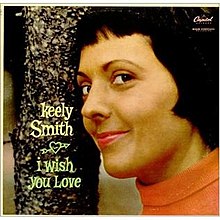
Keely Smith
Okay, this one will be fun. I promise. First. . .At 9 o'clock on the morning of
July 22, 1886, a two-day-old baby was left in a basket at the Ospedale Civile
Hospice in Legnano, Italy, wrapped and wearing a bonnet to which a brass medal
was attached by white cotton thread. True story. The nuns at the hospice
remarked on the large body and strong profile of the child, and thus dubbed him,
unsubtly enough, Apollinare Granforte. And so began the life of one of the
greatest baritones of the first half of the 20th century. First up is a
remarkable film of antic Apollo singing the pillar aria, "Largo Al Factotum,"
from Rossini's "Marriage of Figaro." You know it, you love it, you can't live
without it. This is followed by the horror done to the same aria by Louis Prima
and Keely Smith, "The Bigger the Figure." Or maybe you think it's the other way
around: Rossini is the horror and Prima the artist. Whatever. Think I'll change
my name to Al Factotum.
Apollo Granforte:
https://www.youtube.com/watch?v=WxFOQVsE2Oo
Louis Prima and Keely Smith:
https://www.youtube.com/watch?v=PtoMjMAfylY
Setting: Outside Dr. Bartolo's house at daybreak
Synopsis: Figaro sings of his many talents that make him a good doctor, barber,
matchmaker, etc.
Translation:
http://www.aria-database.com/search.php?individualAria=30
More about Apollo:
https://en.wikipedia.org/wiki/Apollo_Granforte
8.
As for operatic arias that were appropriated by pop artists, this has to be the
weirdest of the lot. I don't care for Laurie Anderson, though many exalt her
work. I find it pretentious, a kind of mainstreaming of artsy-fartsy. She
certainly must be the most monetarily successful so-called avant-garde "artist"
around, and that is no easy trick. But my grumbling aside, Ms. Anderson used the
rousing, heroic aria, "O Souverain," from "Le Cid," by Massenet," in her
bizzarto thingy, "O Superman." First is Placido Domingo with the aria, in a
concert performance, followed by the silly Anderson thing. Or not silly, if you
enjoy it.
https://www.youtube.com/watch?v=O9NnbqwTMp0
Setting: Rodrigue's tent, outside Burgos, Spain, 11th century
Synopsis: Just before a battle against an overwhelming army of Moors, Rodrigue
prays for victory.
Translation (plus a few other renditions):
https://medicine-opera.com/2018/03/o-souverain-o-juge-o-pere/
Anderson:
https://www.youtube.com/watch?v=Vkfpi2H8tOE
9.
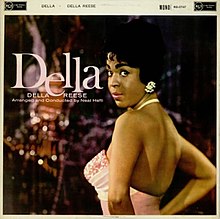
Della Reese
What's that, you say? Op Hits/Pop Hits is a cheap stunt to save me from
thinking? Exactly! So here's yet another cheap stunt. First, we have the
redoubtable "Quando Me'n Vo," from Puccini's "La Boheme," or "Musetta's Waltz,"
if you prefer---practically made a "hit" by the vile, vile, and puerile ripoff
of "Boheme" called "Rent." Okedoke? And after that, yes, it's the same melody
employed in a huge hit by Della Reese in 1959, "Don't You Know?" At least the
single by Ms. Reese sounded good on AM car radios back then. (Yes, I do
remember.)
Synopsis: The coquette, Musetta, sings rather teasingly of how men ogle her
wherever she goes.
Here is soprano Olga Kulchynska in a Met dress rehearsal of the Zeffirelli
production:
https://www.youtube.com/watch?v=2ouWV7aQTGM
Translation:
http://www.aria-database.com/search.php?individualAria=34
Annnnnnd. . .
"Don't You Know" by Della Reese:
https://www.youtube.com/watch?v=N86nxxZW6UY
FINAL BOW:
Seeing as today's posts turned into a sort of compendium of either hit arias, or
arias turned into hit records, or both, might as well go out on a similar big
note. At the end of act one of "Il Pagliacci," the character, Canio---part of a
traveling troupe of entertainers---has discovered that his beloved Nedda is
having an affair. (This ends badly in act two.) Crushed, heartbroken, Canio must
take the stage---as a clown---and entertain the minions. And so he sings the
immortal aria, "Vesti la Giubba" ("put on the costume") in his dressing room.
You know, we all must "put on the costume" now and then, eh? BUT. . .first we
are going to hear this aria sung by that pop artist who loved opera, but pursued
pop singing instead: the great Jackie Wilson. What? Yes, Jackie Wilson sang "Vesti
La Giubba," in the form of a hit record entitled, "My Empty Arms." You can
clearly hear the operatic aspirations in his voice.
Here it is:
https://www.youtube.com/watch?v=QmSrluocd5Y
And here is how it normally sounds, and looks, with the Mario del Monaco, the
man who could not sing quietly.
https://www.youtube.com/watch?v=oN4zv0zhNt8
Translation:
http://www.aria-database.com/search.php?individualAria=595
Saturdee Opry Links Encore!
Back to the unduly overlooked, if not forgotten, tenor Charles Craig. This is
the hit aria, "Dein ist mein ganzes herz," from Lehar's operetta, "The Land of
Smiles," in a boffo English rendition by Charlie. So generally popular as to be
considered both an Op and Pop hit, I say. Talk about a great finish.
https://www.youtube.com/watch?v=yFgurGq55vQ
About the aria:
https://en.wikipedia.org/wiki/Yours_Is_My_Heart_Alone
Synopsis of the tragic story of a man and woman in love, but separated by
cultures.
https://opera-inside.com/dein-ist-mein-ganzes-herz-an-aria-from-the-opera-land-des-lachelns/
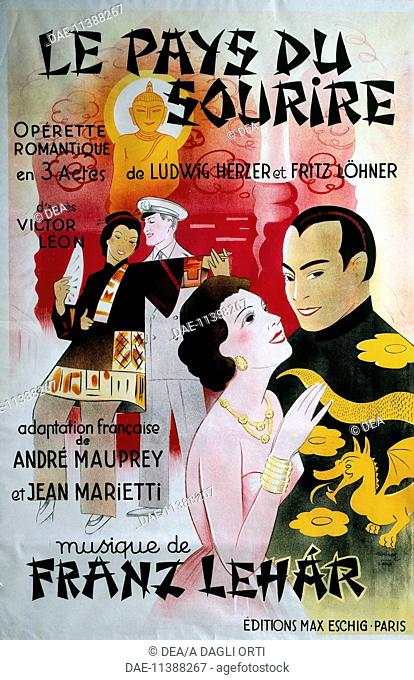
Back to Opera Links
Back to Home Page
|



